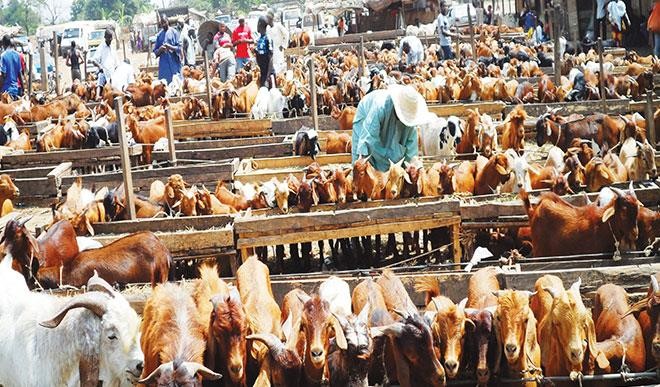
Goat is a small ruminant reared in various parts of the world. In African countries, including Nigeria, goats are kept by farmers and families especially in the rural areas. Goat breeds vary from location to location and in Nigeria the breeds that thrive in the North are different from those in the South.
Findings show that breeds of goat commonly reared in Nigeria include Sokoto Red, Borno Red, West African Long Legged Goat, Kano Brown, African Dwarf Goat, Bauchi type, and African Small Goat, among others.
Checks reveal that goats are kept by farmers and others for various purposes including production of meat, milk, wool/hair and leather.
Meat and milk are either consumed at home or sold to earn income, while the leather provides raw material for the shoe, bag etc. industries and wool/hair is used in making mattress, pillow, etc.
Goats can be easily converted to cash by the owner in time of cash crunch as they are taken to the nearest market and sold.
Experienced goat farmers say it is advisable to source good stock from trusted farms or goat rearers to achieve better results. Depending on choice and business target, goat farmers can either go for goat fattening or breeding using any suitable system of goat rearing.
A goat farmer in Nasarawa State, Mr. Bulus Pam, who has been in the business for over 20 years told our reporter that there are three main systems of rearing goat – the extensive, semi-intensive and intensive – but pointed out that the intensive system is preferable if a farmer wants to run the business profitably.
“The intensive system requires more capital but to maximize profit, goat farmers are advised to practise the system as the goats are confined in a building and given medications, water, balanced diet as well as salt licks for healthy living,” the farmer advised.
The intensive system, Mr. Pam said, saves labour, increases production, allows for keeping of good records and reduces mortality.
The farmer explained that the extensive and semi-intensive systems are relatively cheap, but require more labour and expose the animals to bad weather conditions, diseases, parasites and even thieves.
Mr. Pam told Daily Trust that goat houses, whether built with bricks, mud or wood and roofed with metal sheets or thatch, must provide good shelter with proper ventilation, be kept dry and equipped with hay-racks or mangers for feeding the animals.
While disclosing that feed for goats must contain essential protein, carbohydrates, vitamins and minerals to promote growth, he advised that it should be mainly made up of roughages like grasses.
Mr. Pam further disclosed that leaves, weeds, crop by-products such as rice or wheat bran, sunflower cake, linseed cake, sugar-cane tops and legumes, among others are good sources of low cost feeds for goats.
According to an animal health expert, Mr. Victor Yakubu, who also spoke on the issue, “goats should be properly housed and fed with concentrates for fast growth and high production in order to ensure good profit.”
The expert who said feeds should be given according to category of the animals, for example, colostrum for kids, stressing that pregnant or lactating goats needed more feed to keep them in good condition.
Mr. Yakubu noted that proper health care and sanitation, in addition to good management must not be overlooked if any goat farmer wants to excel in the business.
He pointed out that it is better to start small and expand as one gets more experience in the business to avoid unnecessary losses.

 Join Daily Trust WhatsApp Community For Quick Access To News and Happenings Around You.
Join Daily Trust WhatsApp Community For Quick Access To News and Happenings Around You.


